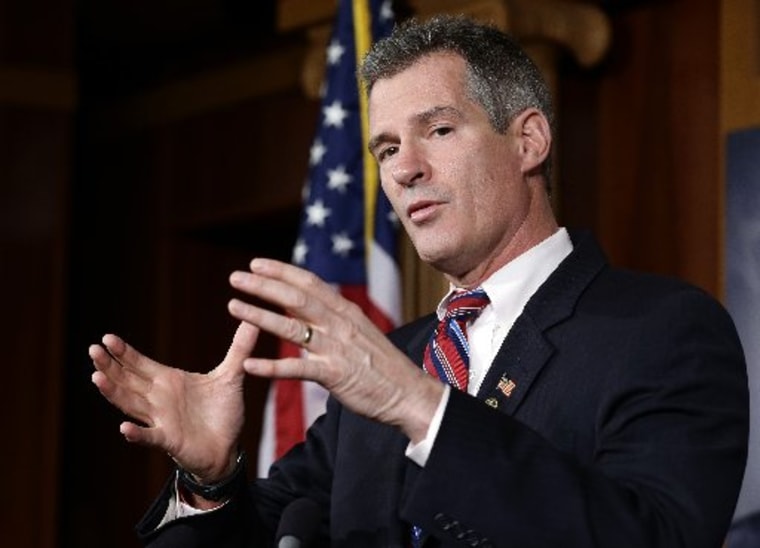Scott Brown, for one, is breaking ranks.
On Wednesday, the outgoing senator became the first Republican lawmaker in the upper chamber of Congress to back a federal assault weapons ban after the horrific mass shooting in Newtown, Conn.
He told the Springfield Republican that what happened at Sandy Hook Elementary School was “beyond my comprehension,” adding that “as a state legislator in Massachusetts I supported an assault weapons ban thinking other states would follow suit. But unfortunately, they have not and innocent people are being killed. As a result, I support a federal assault weapons ban, perhaps like the legislation we have in Massachusetts.”
Brown—who lost in a hotly contested race to Democrat Elizabeth Warren—won’t be in the Senate to cast his vote on any new gun legislation, including the ban that Democratic Sen. Dianne Feinstein says she’ll introduce next year. And Brown may have political motives. With fellow Massachusetts Sen. John Kerry likely to become President Obama's next secretary of state, Brown may be hoping to position himself for a special election run for Kerry's seat in liberal Massachusetts.
Still, will other senators follow Brown’s suit?
David Schultz, a political scientist at Hamline University, said it’s possible other GOPers—who aren’t in the deep south—might join Brown, citing public opinion shift on gun control. He cited moderate GOP Sen. Susan Collins of Maine as a possibility.
Republicans “may be learning the lessons after the last election and may move a [little to the left] on guns or they may [genuinely] have a change of heart on the issue” following the shooting, he said.
Schultz added Brown’s backing the assault rifle ban was “no surprise,” arguing “this is probably a position on assault rifles that is well suited for re-election” or it may simply indicate he’s not worried about what the National Rifle Association and other gun lobbyists think “since he’s basically out of job.”
Dan Hazelwood, a Republican strategist agreed that it’s conceivable a few small senators might move in favor of the ban, but it’s more indicative that Brown “marches to his own tune.”
He added that at the end of the day, more Republicans would not endorse the ban because it’s an “ineffective piece of legislation because it’s awkward to word.”
Hazelwood said the legislation, at least in 1994, was seen by many in the Republican ranks as a “public relations stunt” because it’s either too broad or too narrow to be deemed effective.
The last federal assault weapons ban was enacted from 1994 to 2004. It outlawed manufacturing, transferring and possessing semi-automatic assault rifles, listing several guns by name including AK-47s, Uzis, and Colt AR-15s. The ban had a provision that allowed it to expire eight years ago.
“We won’t know until the legislation is out there,” said Hazelwood.
Meanwhile, President Obama has come out saying he will back Feinstein’s ban next year.
Other Republican senators have weighed in on gun control since the shooting that left 20 children dead, but have given little in the way of specifics.
Republican Sen. Charles Grassley of Iowa said it’s time for a debate that includes gun control.
And Senate GOP leader Mitch McConnell told reporters earlier this week that "the entire Congress is united in condemning the violence in Newtown and on the need to enforce our laws. As we continue to learn the facts, Congress will examine whether there is an appropriate and constitutional response that would better protect our citizens."
